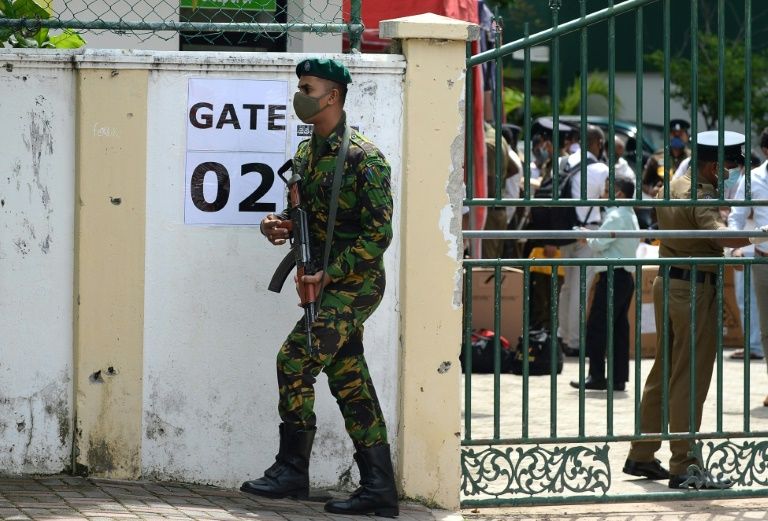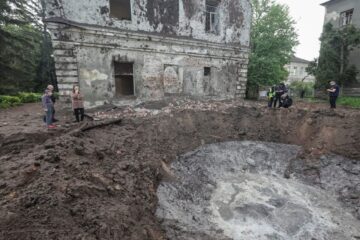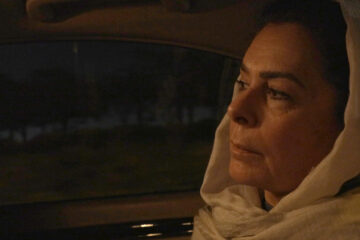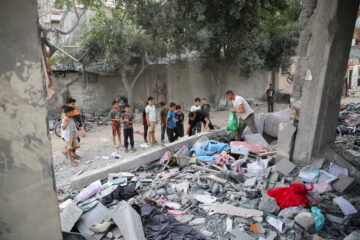Rajapaksa brothers seek to consolidate power in virus-delayed Sri Lanka vote

Sri Lankans turned out in large numbers to vote in parliamentary elections Wednesday despite the coronavirus pandemic, as the ruling Rajapaksa brothers sought a fresh mandate to cement their grip on power.
The parliamentary election had been postponed twice due to the virus epidemic, but finally got under way at 7:00 am (0130 GMT) with strict hygiene measures in place to prevent the spread of the disease.
The siblings are seeking a two-thirds majority to roll back constitutional changes introduced by the previous administration that limit the president’s powers.
Analysts expect them to easily secure a majority in the 225-seat parliament. First results are expected by Thursday evening, with the final tally due late Friday.
People began lining up outside polling stations even before they opened across the island, where 16.23 million of the 21 million residents are eligible to vote.
Turnout was up to 30 percent in most parts of the South Asian country in the first three hours, election officials said.
“There were about 20 people ahead of me in the queue, but it took nearly an hour to vote,” a woman in Kaduwela suburb in the capital Colombo said, referring to health measures at her booth.
Voters must wear face masks, keep a social distance and bring their own pen or pencil to mark their ballot paper under rules to prevent transmission of the virus.
There were fears the risks posed by the pandemic would reduce turnout. Some 82 percent of the electorate had voted in the November presidential election.
The unprecedented health measures have made it the most expensive vote on record at 10 billion rupees ($54 million), the Election Commission said.
– Economic challenges –
After winning the presidency in November, Gotabaya Rajapaksa appointed his brother Mahinda, a former president, as prime minister in a minority government.
Since then Sri Lankans have largely embraced their populist platform, which emerged from a wave of nationalism in the wake of the deadly 2019 Easter bombings by Muslim radicals that killed 279 people.
The brothers are also viewed as heroes by the Sinhalese majority for orchestrating the military’s ruthless campaign that ended the decades-long Tamil separatist war in 2009 during Mahinda’s presidency.
Huge economic challenges await the new parliament. The economy had scarcely recovered from the blow of the deadly bombings before the coronavirus epidemic struck.
On Wednesday, official figures showed that growth contracted by 1.6 percent in the first quarter of this year.
The Asian Development Bank expects the island’s economy to shrink by an unprecedented 6.1 percent this year.
Still, Sri Lanka appears to have escaped the worst of the contagion.
Test result figures are considered dubious by opposition parties, but authorities have reported just 11 deaths from fewer than 3,000 cases.
“They will win by a huge margin but the economic and social problems post-COVID-19 will be huge,” political analyst Kusal Perera told AFP.
Mahinda is expected to lean heavily on China for economic assistance — as he did during a decade as president until 2015 — but also increasingly on neighbouring India.
SOURCE> AFP
PHOTO> A Sri Lanka Special Task Force soldier stands guard as electoral officials collect ballot papers and boxes from a distribution centre in Colombo (AFP Photo/LAKRUWAN WANNIARACHCHI)











